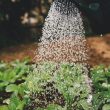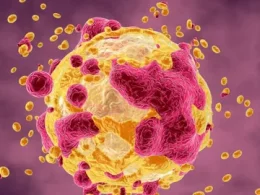Are you curious about the difference between organic farming and conventional agriculture? With concerns about sustainability and environmental impact on the rise, more people are turning to organic options for their food. But what is the evidence behind these choices? In this blog post, we will explore the data on yield, profitability, and sustainability of both methods. So grab a snack (preferably organic!) and let’s dive in!
What is organic farming?
Organic farming is a method of agriculture that relies on natural processes and avoids the use of synthetic chemicals. This means that farmers who practice organic farming do not use synthetic fertilizers, pesticides, herbicides or genetically modified organisms (GMOs) in their crops. Instead, they rely on natural methods such as crop rotation, composting and conservation tillage to maintain soil health.
One key principle of organic farming is the emphasis on biodiversity. Organic farmers often cultivate a variety of crops together, which helps to promote beneficial insects and prevents pest populations from becoming too large. They also encourage native plants and wildlife by creating habitats around their farms.
In addition to avoiding synthetic chemicals, organic farmers also prioritize animal welfare. They provide animals with access to outdoor space and fresh air, feed them non-GMO feed without antibiotics or hormones, and avoid overcrowding in barns.
Organic farming practices strive for sustainability by maintaining healthy soil ecosystems while producing high-quality food products without harming the environment or consumer health.
What is conventional agriculture?
Conventional agriculture refers to the traditional way of farming where chemical fertilizers and pesticides are used to enhance crop growth and protect them from pests. This method has been prevalent since the 1950s, when increased demand for food led farmers to adopt modern techniques that could increase their yield.
Conventional agriculture typically involves monoculture, which is the practice of growing a single crop on a large scale. Farmers often use genetically modified seeds, synthetic chemicals, and heavy machinery in order to grow crops faster and more efficiently. These practices have helped conventional farmers produce larger quantities of crops than ever before.
However, critics argue that conventional agriculture is unsustainable in the long run due to its negative impact on soil health, water use efficiency, biodiversity loss and climate change. Heavy reliance on synthetic fertilizers can degrade soil quality over time by reducing organic matter content leading to lower yields requiring even more inputs like nitrogen or phosphorus fertilizer.
Furthermore, using pesticides can lead to pesticide resistance among pests while killing off beneficial insects such as bees which are vital for pollination. Conventional agriculture also contributes significantly towards greenhouse gas emissions through fossil fuel usage during transportation, irrigation systems etc., exacerbating climate change effects further.
Though it’s important we continue discussing these issues so that we may find new solutions for making our agricultural practices more sustainable without risking our planet’s future wellbeing.
The evidence on yield
When considering the yield of organic farming versus conventional agriculture, there are several factors to take into account. One study published in the journal Nature found that organic farms had 19% lower yields on average than conventional farms. However, this difference varied depending on crop type and location.
Other studies have found conflicting results, with some showing no significant differences in yield between the two methods and others finding higher yields for organic farming. These discrepancies may be due to variations in soil quality, climate conditions, and management practices.
While conventional agriculture may initially result in higher yields, these often come at a cost – increased use of synthetic fertilizers and pesticides can degrade soil health over time. Organic farming focuses on building healthy soils through practices such as crop rotation and composting, which can lead to improved long-term yield stability.
Ultimately, while there is evidence pointing towards both higher and lower yields for organic farming compared to conventional agriculture, it’s important to consider all factors involved when making comparisons between the two methods.
The evidence on profitability
When it comes to profitability, the debate between organic farming and conventional agriculture is often heated. Proponents of conventional agriculture argue that their methods are more profitable due to higher yields and lower production costs.
However, recent studies have shown that organic farming can be just as profitable, if not more so, than conventional agriculture. One study conducted by the USDA found that over a 10-year period, organic farms were consistently more profitable than their conventional counterparts.
One reason for this increased profitability is the premium price that consumers are willing to pay for organic products. Another factor is the lower input costs associated with organic farming practices such as crop rotation and natural pest control methods.
Furthermore, there are hidden costs associated with conventional agriculture such as environmental damage and healthcare expenses related to pesticide exposure. These costs can add up quickly and ultimately impact overall profitability.
While there may be initial investment required in transitioning from traditional farming practices to organic ones, there is strong evidence suggesting that it can lead to long-term profitability for farmers who choose this route.
The evidence on sustainability
When it comes to sustainability, organic farming has been shown to have numerous benefits over conventional agriculture. One of the primary concerns in today’s world is the impact that agriculture has on the environment. Conventional agriculture relies heavily on chemical fertilizers and pesticides, which can lead to soil degradation and water pollution.
On the other hand, organic farming promotes biodiversity by using natural methods such as crop rotation, composting, and biological pest control. This not only helps maintain healthy soil but also reduces greenhouse gas emissions by sequestering carbon in the soil.
In addition, organic farms typically use less energy than conventional farms since they don’t rely on synthetic inputs or large machinery for production. This results in a lower carbon footprint and overall reduced environmental impact.
Furthermore, sustainable practices used in organic farming help preserve wildlife habitats while minimizing disturbance to ecosystems. Organic farmers often implement conservation measures such as planting native vegetation around fields or leaving areas of land undisturbed to provide habitat for pollinators and other beneficial insects.
While there may be some trade-offs when it comes to yield or profitability between organic farming and conventional agriculture, it’s clear that when it comes to sustainability – organic farming is a clear winner.
Conclusion
After examining the evidence on yield, profitability, and sustainability of organic farming versus conventional agriculture, it is clear that both methods have their benefits and drawbacks.
Organic farming may result in lower yields but often produces higher-quality crops with fewer harmful chemicals. While initially more expensive to set up, it can also be profitable over time thanks to growing demand for organic products.
Conventional agriculture tends to deliver higher yields due to technological advancements and economies of scale. However, there are concerns about its impact on soil health, biodiversity loss and greenhouse gas emissions.
Choosing between organic farming or conventional agriculture ultimately comes down to individual priorities. If you value environmental sustainability above all else than going organic might be the right choice for you. On the other hand if high productivity is your main concern then going conventional would be a better option. But no matter which route one chooses – we must always remember that responsible stewardship of our land resources is critical for feeding ourselves today without compromising future generations’ ability to do so as well!










